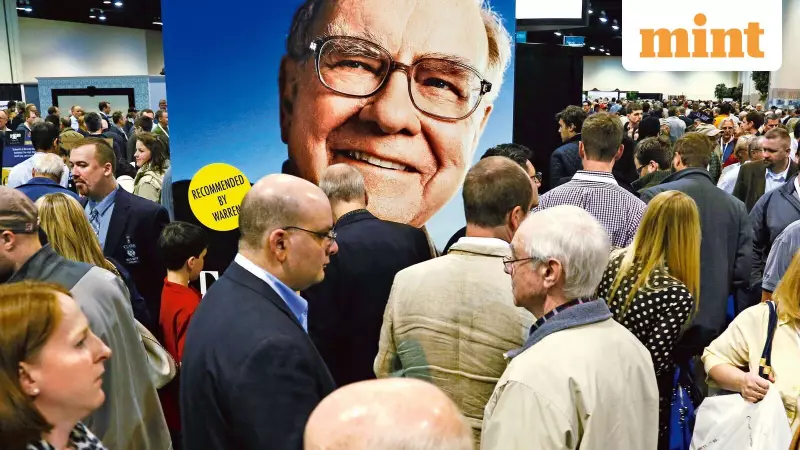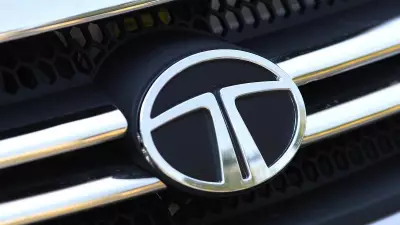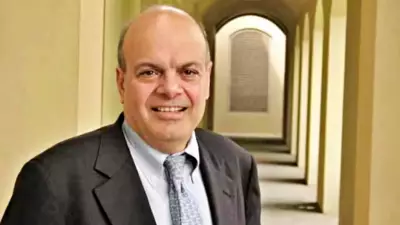
The investment world is witnessing a historic transition as Warren Buffett prepares to step down as CEO of Berkshire Hathaway after six decades at the helm. The 95-year-old investing legend will pass leadership to his handpicked successor, Greg Abel, in what promises to be one of the most closely watched corporate successions in American business history.
The Changing of the Guard
While Buffett will remain as chairman and plans to maintain daily presence at Berkshire's Omaha headquarters, the company he built into a $1 trillion behemoth will never be the same. Many investors view this transition with apprehension, but financial analysts argue the timing is actually optimal for Berkshire's future growth.
Buffett has visibly slowed in recent years, adopting an increasingly cautious approach that has impacted Berkshire's performance. The company's massive $350 billion cash hoard has become a drag on returns, while recent acquisition decisions have failed to deliver expected value. Berkshire stock has risen 13% in 2025, trailing the S&P 500's 16% gain, and has underperformed the index over three, ten, and fifteen-year periods.
Meet Greg Abel: The Unknown Successor
Greg Abel, 63, represents both continuity and change for Berkshire Hathaway. The Canadian-born executive ran Berkshire's energy operations before becoming vice chairman and head of non-insurance businesses in 2018. While he has occasionally spoken at Berkshire's famous annual meetings, he remains somewhat mysterious to most investors.
Analysts note that Abel's strengths differ significantly from Buffett's legendary investment prowess. Cathy Seifert, CFRA analyst, observes that "Abel has a strong operational and financial management background. He doesn't have professional money-management experience, and he doesn't have the Street cred like Buffett."
This distinction is crucial because for Abel to succeed, he cannot simply mimic his predecessor's approach. Berkshire must transform from a company whose investment case rested on Buffett's genius to a "normal" corporation that thrives on operational excellence and transparent governance.
Berkshire's Current Strengths and Weaknesses
Despite recent performance concerns, Buffett leaves Berkshire in exceptional financial health. The conglomerate boasts a market value exceeding $1 trillion, nearly $50 billion in after-tax earnings power, a $300 billion equity portfolio led by Apple and American Express, and what Buffett calls a "Fort Knox balance sheet" with over $350 billion in cash.
Berkshire's core operations include property-and-casualty insurance (accounting for a quarter of revenue and half its value), Burlington Northern Santa Fe railroad, Berkshire Hathaway Energy, and numerous other divisions from chemicals to truck stops to private jet travel. Each major unit is estimated to be worth $100 billion or more.
However, Berkshire's acquisition record over the past fifteen years has been disappointing. Lubrizol's earnings haven't grown since its $9.7 billion purchase in 2011, while Berkshire's Kraft Heinz investment is worth less than the original $9 billion commitment. Precision Castparts has only recently surpassed the $37 billion purchase price after a decade, underperforming comparable aerospace investments.
Analyst Jim Shanahan notes that "Berkshire missed the stock market rally while hoarding cash," highlighting one of the key challenges Abel must address.
The Abel Agenda: Modernizing Berkshire
Greg Abel faces several critical decisions that could redefine Berkshire for the 21st century. The most pressing issue involves the massive cash reserves. While investors trusted Buffett to deploy these funds optimally, they will likely demand a clearer strategy from Abel.
Key changes Abel should consider include implementing Berkshire's first dividend since the 1960s, initiating quarterly earnings conference calls, improving financial disclosure, and potentially indexing portions of the equity portfolio. A 2% dividend would cost about $20 billion annually—less than half of operating earnings—without reducing cash levels.
Abel must also address Berkshire's investment management structure. While Todd Combs and Ted Weschler currently manage about 10% of the $300 billion equity portfolio, questions remain about their future roles. Abel could appoint a chief investment officer or consider indexing strategies for part of the portfolio.
The new CEO should also consider spinoffs or sales of smaller businesses, as Berkshire's 60-plus subsidiaries create management complexity with only about ten contributing meaningfully to value.
Building Investor Confidence
Abel's immediate challenge involves establishing credibility with Berkshire's three million shareholder accounts. The stock has underperformed the S&P 500 by over 20 percentage points since Buffett's May announcement about stepping down, indicating some "Buffett premium" has evaporated.
Abel can build confidence by increasing his personal stake in Berkshire, which currently stands at $175 million. While substantial by typical CEO standards, this represents only a fraction of his estimated $1 billion net worth after selling his energy business stake back to Berkshire.
Bill Stone, CIO of Glenview Trust, provides some investor perspective: "The thing that gives me comfort is the absolute financial strength of the company. It owns a diversified group of businesses, and the balance sheet is amazing. You sleep well at night owning it."
The Path Forward
Despite the challenges, Berkshire's fundamental strengths position it well for the post-Buffett era. With over 80% of revenue from the U.S. and a diversified business portfolio, Berkshire represents the closest thing to a mutual fund available in the stock market.
Edward Jones analyst Jim Shanahan remains bullish, citing Berkshire's reasonable valuation of about 1.5 times book value and 22 times earnings—in line with market averages. The company's "look-through earnings" ratio sits in the high teens, suggesting attractive valuation.
Abel's success will ultimately depend on articulating a compelling vision for Berkshire's future—one that honors Buffett's legacy while embracing necessary evolution. As one of the last great conglomerates in an era that prefers pure-play companies, Berkshire must demonstrate that its unique structure can continue delivering value without its legendary leader at the controls.
The transition marks the end of an incredible era, but potentially the beginning of another successful chapter for one of the world's most remarkable companies.





